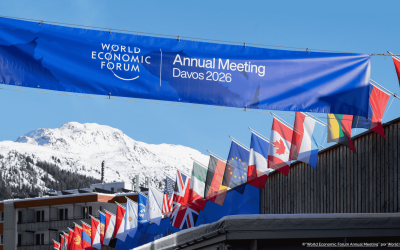Last week a senior executive asked me what the difference was between social impact and what his company was already doing for society…the answer was very simple, I asked him if he measured his theoretical social impact with the same precision as the economic impact of his activity, and if he gave it the same level of importance, evidently the answer was negative.
A company with a social impact is one that has a social and/or environmental purpose and as a consequence makes money, as much as possible…in other words, a company with a soul.
The role of a company with a soul, in the face of a disaster such as the hurricane in Valencia, should be that of an active player in the recovery and support of the affected communities. Companies, as important members of society, not only have a responsibility to protect their assets and employees, but also to contribute significantly to the recovery and well-being of the territories in which they operate. The following are some examples of required and necessary actions:
- Monetary donations: companies can make significant financial donations to local or global humanitarian organizations working on the ground, such as the Red Cross, Caritas or food banks.
- Provision of resources: in addition to financial support, companies can donate physical resources such as food, water, clothing, construction materials and medical equipment.
- Logistical and operational support: companies with logistical capabilities, such as transportation, telecommunication, energy, water, etc., can offer free delivery services for emergency supplies. They can also help organize and manage the transportation of affected people, and provide temporary infrastructures until the structural ones are repaired.
- Psychological assistance programs: Trauma after a disaster can be long-lasting. Companies can fund psychological support programs for affected people, especially for children and families who have lost their homes.
- Strategic alliances: form alliances with other companies, NGOs and/or the government to coordinate a more effective response and maximize the impact of aid.
- Reforestation and reconstruction initiatives: for environmentally affected areas, companies can invest in reforestation, ecosystem restoration and sustainable infrastructure reconstruction projects.
- Economic recovery programs: provide soft lines of credit or grants to small businesses and local entrepreneurs to help them recover and rebuild their businesses.
Fortunately, Spain has a sense of solidarity that is unique in the world, and the business class is turning to aid and programs such as:
1. CaixaBank: It has enabled a financing line of more than 2,500 million euros aimed at companies in the affected area, facilitating the repair of damages and ensuring the continuity of their activities. In addition, the bank is collaborating with the Red Cross and Caritas, setting up a free platform to collect donations for the victims.
2. Amancio Ortega and Inditex: The businessman Amancio Ortega and his Inditex group have made a millionaire donation to alleviate the situation of those affected by the storm, demonstrating a significant commitment to the Valencian community in times of need.
3. Banco Sabadell: Activated a plan of support measures for families and companies affected by the hurricane in the Valencian Community and approved a 100 million euro extension of the credit line available to the Generalitat Valenciana.
4. La Caixa Foundation: Mobilized resources to support affected families, providing economic assistance and facilitating access to basic services. In addition, it has implemented psychological support programs for those affected, demonstrating its commitment to the welfare of communities in emergency situations.
5. Mapfre Foundation: Has allocated funds for the reforestation of affected areas and the reconstruction of community infrastructure. Its experience in environmental recovery projects is fundamental to mitigate the damage caused by the storm.
6. Fundación CEOE: Through its “Empresas que Ayudan” project, it is coordinating business solidarity to channel donations and resources to the affected areas. This initiative facilitates collaboration between companies and social entities, optimizing the aid provided to the victims.
7. MasOrange: In addition to the work to reestablish communications and donation and volunteer programs, the company is providing customers of all its affected brands with an additional data voucher so that they can use it to contact their loved ones in these tragic circumstances.
These are just a few examples of the number of companies that are contributing resources and capital to this catastrophe to date: Repsol, ACS, Apple, BBVA, Santander, Unicaja, Naturgy, etc. …., hopefully it will not remain an isolated act, and all companies will have social impact and purpose in their DNA, not only when there are disasters like the current one. The role of a company should not only be reactive, but also proactive. This means not only responding after the disaster, but also working on prevention, supporting community resilience and long-term planning to avoid or mitigate future damage. The key is to act with empathy, responsibility and in collaboration with all the actors involved in the recovery, the key is that companies have a soul, and that in addition to making money they have a social and/or environmental purpose.
Davos 2026: plenty of diagnosis, few decisions
The annual World Economic Forum meeting once again brought together political leaders, CEOs and major investors in Davos, against a backdrop defined by three clear tensions: economic slowdown, an...
Just one year later: the lasting footprint of the solidarity ultramarathon in Anantapur
-By Montserrat López It has been exactly one year since our trip to India. A journey that does not end when you land back home. Its impact still reverberates. It continues. Exactly one year ago, we...
Takumi: when craftsmanship becomes business excellence with soul
In Japan, there is a word that goes far beyond a profession: takumi. It does not refer simply to a skilled craftsperson, but to someone who has devoted decades of their life to perfecting a skill...




